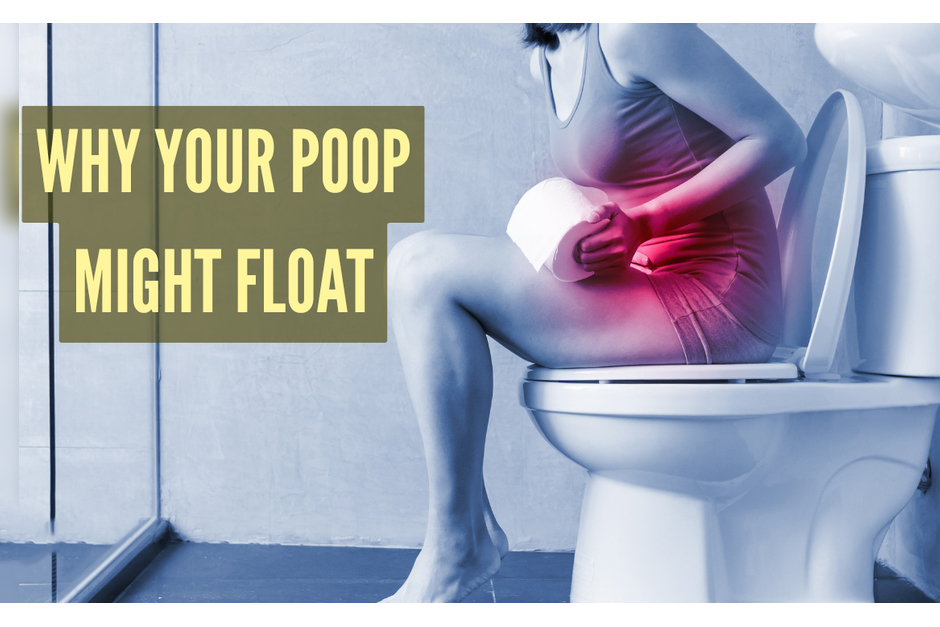The human body is a marvel, and its processes, while often taken for granted, can sometimes throw up curious observations. One such phenomenon, often discussed in hushed tones or with a touch of amusement, is whether one’s stool sinks or floats. For many in India, where discussions around bodily functions are becoming more open, this simple observation can spark questions about health. Is it normal? Does it mean something is wrong? Let’s delve into the science behind this common experience and understand what your poop might be trying to tell you about your well-being.
The Science Behind the Sink or Float
At its core, whether an object floats or sinks depends on its density relative to the fluid it’s in – in this case, water. Stool, primarily composed of water, undigested food particles, bacteria, and waste products, usually has a density greater than water, causing it to sink. However, sometimes it doesn’t, and the most common reason for this buoyant behaviour is the presence of gas.
Our gut is a bustling ecosystem, home to trillions of bacteria that play a vital role in digestion. When we consume foods, particularly complex carbohydrates and fibres – staples in many Indian diets like dals, whole grains, and a variety of vegetables – these bacteria ferment them. This fermentation process naturally produces gases such as methane, hydrogen, and carbon dioxide. If a significant amount of these gases gets trapped within the stool matrix, it can reduce the overall density, causing it to float. For individuals who follow a fibre-rich vegetarian or even a balanced Indian diet, experiencing floating stool due to gas can be a completely normal occurrence, indicating a healthy and active gut microbiome at work.
Beyond gas, another factor influencing buoyancy is fat content. Stool that is excessively high in fat, a condition known as steatorrhea, can also float. Fat is less dense than water, and when the body struggles to absorb dietary fats effectively, these unabsorbed fats can end up in the stool, making it lighter and often greasy.
When Floating Stool Might Signal a Health Concern
While occasional floating stool is generally harmless and often attributed to dietary factors, persistent floating, especially when accompanied by other symptoms, warrants attention. The primary concern linked with consistently buoyant stool is malabsorption – the body’s inability to properly absorb nutrients from food.
Steatorrhea, or fat malabsorption, is a key indicator to watch for. Stool affected by steatorrhea isn’t just floating; it’s typically greasy, bulky, pale or clay-coloured, and often has a particularly foul odour. People experiencing steatorrhea might also notice other symptoms such as unexplained weight loss, abdominal pain or cramping, chronic diarrhoea, and deficiencies in fat-soluble vitamins (A, D, E, K). In the Indian context, conditions like pancreatic insufficiency (where the pancreas doesn’t produce enough digestive enzymes) or celiac disease (an autoimmune reaction to gluten, increasingly recognised in India) can lead to fat malabsorption. Other causes might include Crohn’s disease, giardiasis, or certain liver and bile duct issues that impair bile production, crucial for fat digestion.
Furthermore, conditions that lead to excessive gas production beyond normal dietary fermentation can also cause persistent floating stools. These might include small intestinal bacterial overgrowth (SIBO), lactose intolerance (common in many parts of India, where dairy is widely consumed but enzyme activity can vary), or even certain parasitic infections. It’s crucial to understand that floating stool alone is rarely a definitive sign of serious illness. The context of other accompanying symptoms, their persistence, and impact on overall well-being is what truly determines the need for medical evaluation.
As Dr. Priya Sharma, a Mumbai-based gastroenterologist, notes,
“Our stools are like daily reports from our digestive system. While an occasional floating stool is often a benign sign of a fibre-rich diet and active gut bacteria, persistent changes, especially when combined with symptoms like significant weight loss, abdominal pain, or changes in stool colour and consistency, should prompt a consultation with a healthcare professional. It’s about observing patterns, not just isolated events.”
This underscores the importance of holistic observation.
Ultimately, understanding why your stool sometimes floats can demystify a common bodily function and help you gauge your digestive health. For many, especially those enjoying a traditional Indian diet rich in plant-based foods, it’s a normal sign of a well-functioning gut processing complex nutrients. However, if floating stool becomes a consistent occurrence, especially when accompanied by alarming symptoms such as unexplained weight loss, chronic abdominal discomfort, changes in stool colour or consistency, or a particularly foul odour, it’s wise not to self-diagnose. Consulting a doctor can provide clarity, rule out underlying conditions, and ensure your digestive system continues to serve you well. Our bodies offer subtle clues, and learning to interpret them responsibly is a step towards better health.




